
Life in someone else’s shoes
Miriam Yousaf remembers sitting in front of the whiteboard in the common room during her freshman year.
It was in Global Scholars Hall on the fourth floor of the center tower. She was part of the Clark Honors College Academic Residential Community.
She and two of her best friends stayed up until 3 a.m., talking through global problems with Expo markers in hand. “We have this dialogue of three people from very different backgrounds trying to talk through logic and religion and climate change and politics,” she recalls. “And we would work through it.”
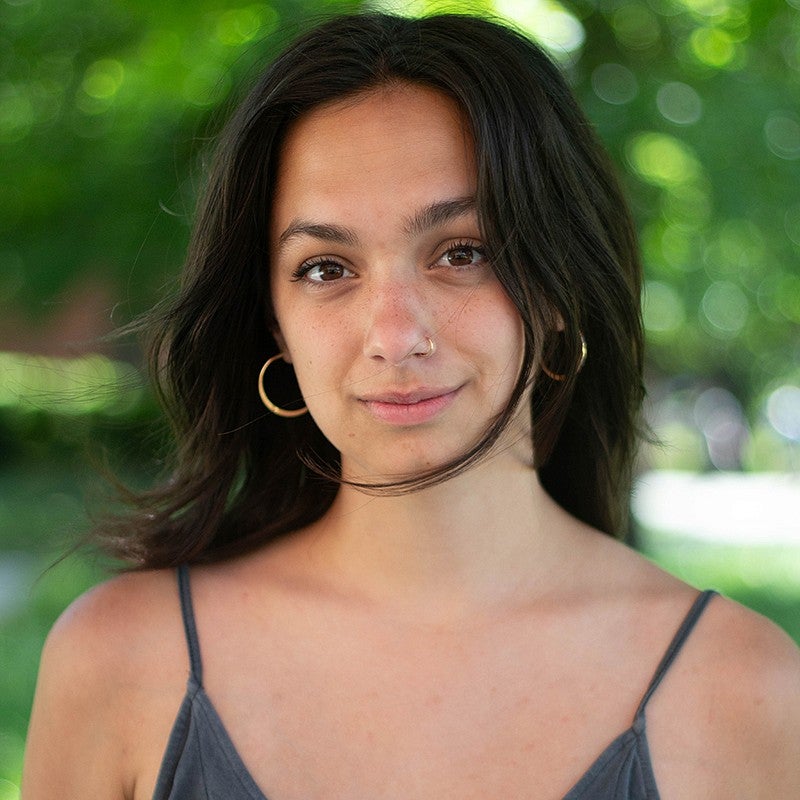
Miriam Yousaf
Major: Global studies
Minors: Spanish, global gealth and environmental studies
Thesis: “Ask, Don’t Tell: Postcoloniality in Development Theory and Practice”
Describe your experience at the CHC: inspirational, wonderful faculty, front desk.
One moment that made all the difference: I think deciding to take an “Inside-Out Prison Exchange” class.
Advice on the thesis project: Pick a topic that will force you to read things that you actually want to read.
Advice for incoming first-year students: I think keep asking questions and get out of your comfort zone.
This summer, I can’t wait to: Jump in the river. I’m going to the Oxford Consortium for Human Rights through UO, so I’m excited about that too. And to see my grandma.
What I’ll miss most about the CHC: My friends, my mentors, and my community.
I’m grateful for: All the time I’ve gotten from faculty and mentors.
I’m headed to: Columbia University and New York City.
Yousaf incorporates empathy and conversations into all aspects of her life. As a global studies major with minors in Spanish, global health, and environmental studies, seeing things from multiple points of view is a key aspect of her education. Her time at the University of Oregon and the Clark Honors College has helped her hone her interests in global health initiatives and human rights documentation, along with providing her with avenues to express her passion for these subjects.
Finding an Outlet
Although Yousaf has always seen things from a worldly perspective, her academic pool hasn't been as deep as it is at the UO. She grew up in St. Louis, attending a small Christian high school with eight people in her graduating class. Her high school curriculum did not include subjects like the climate crisis or the Big Bang theory, so she felt like there were gaps in her education.“
My parents wanted something that mirrored their traditional schools in England but was also religious,” Yousaf said. When Yousaf was growing up her parents practiced Christianity and wanted religion to be a part of her formal schooling.
Although she didn’t love the way she was educated, she did learn some unique things from her high school. “I took one year of Spanish and six years of Latin,” she said with a laugh.
She might have been sheltered at her high school, but Yousaf always had dance as an outlet. “That was something that allowed me to have a sense of reality and community outside my very conservative school,” she says.
She remembers starting to dance at a contemporary company in downtown St. Louis, where her classes were filled with other people of color and her instructors were openly gay men. “Getting to be in that community as a 16 and 17-year-old was a peek at what life could be like, what I would want it to look like, 30 minutes from my house but not what I’m growing up in,” she says.
Yousaf knew that she wanted to move out of the Midwest for college. Her parents grew up in the UK, and wanted her and her siblings to have a similar finishing school experience to them. She was the only non-white person in her class in high school and wanted to exist in a space where she didn’t feel passively unsafe for speaking her mind. Moving to Eugene was like a shock to the system. Yousaf was thrilled to see people unafraid to express themselves in their fashion choices and political opinions learning alongside her.
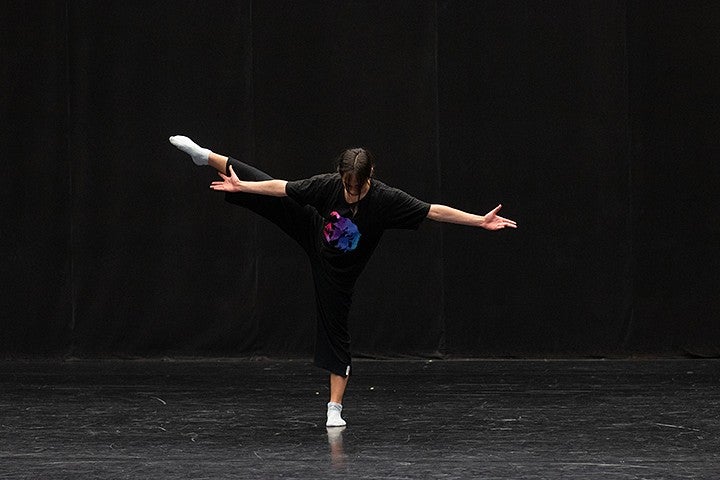
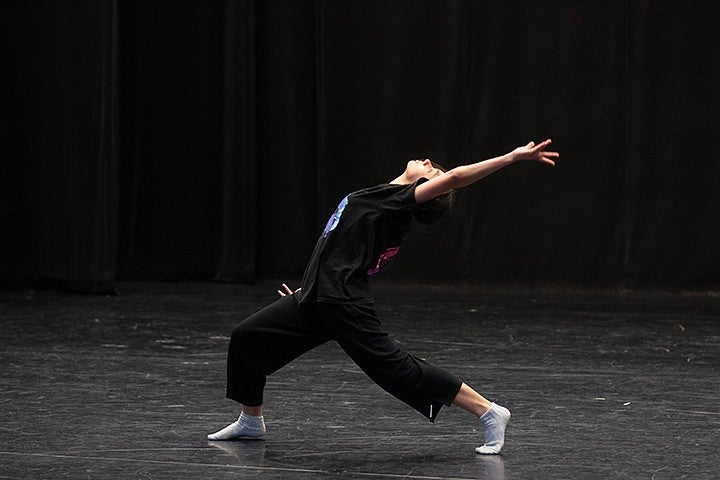
She remembers starting to dance at a contemporary company in downtown St. Louis, where her classes were filled with other people of color and her instructors were openly gay men. “Getting to be in that community as a 16 and 17 year old was a peek at what life could be like, what I would want it to look like, 30 minutes from my house but not what I’m growing up in,” she says.
Yousaf knew that she wanted to move out of the Midwest for college. She was the only non-white person in her class in high school and wanted to exist in a space where she didn’t feel passively unsafe for speaking her mind. Moving to Eugene was like a shock to the system. Yousaf was thrilled to see people unafraid to express themselves in their fashion choices and political opinions learning alongside her.
Expanding her world
Her freshman year, she relished that her peers at UO didn’t only believe in climate change, but also wanted to brainstorm ways to combat it. She continued being a part of the dance community, although classes were sometimes on Zoom due to the COVID-19 pandemic. The most satisfying part of her first year at UO was finding out what global studies were about.
“In the winter of 2021, I took my first global studies class over Zoom,” she remembers. “It fit so neatly on my brain as a way of thinking and looking at the world.”
The class, “Global 240: Perspectives on International Development,” was partially a role-play simulation similar to the United Nations. Yousaf played an ethnic minority religious leader and relished working her way through a coup d’état during the class final. “Thinking about world problems on that scale, with all these different actors and ideologies, including religion and geography and politics, totally made sense to me and was new to me,” she says.
The course inspired her to declare her degree in global studies, something she has loved studying throughout college. “One of the things that I love a lot about global studies is that it’s a study in differences,” she says. “You have to teach yourself to be curious beyond your first thought. You can’t work in diplomacy or in global health initiatives if you’re stuck with your first thought.”
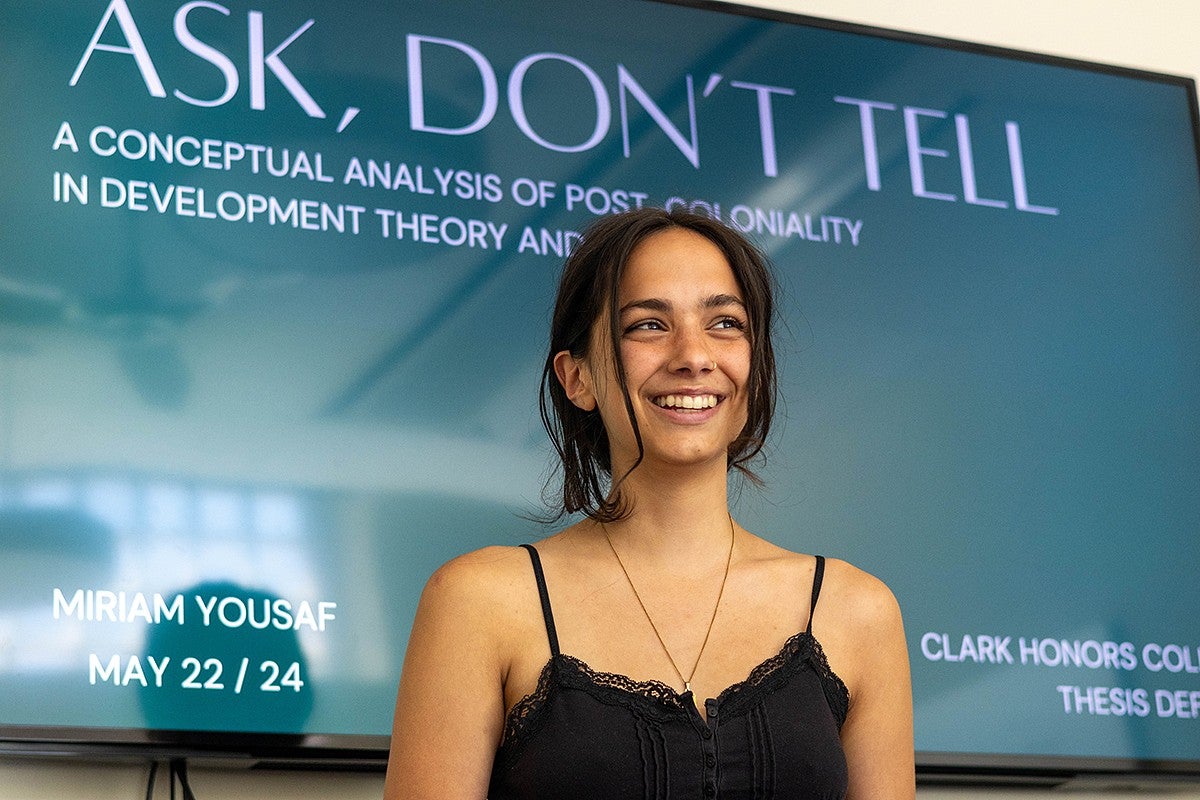
Connecting through the CHC
Yousaf found ways to apply these study methods in the Honors College, as well. She hit her stride in the CHC, taking an “Inside-Out Prison Exchange” course with Associate Professor Anita Chari, where she got to learn alongside incarcerated students. The course that she took, “Autobiography as Political Agency,” focused on reading works by authors like James Baldwin and Ta-Nehisi Coates and writing personal reflections on them.
“They’ve taken notes on the readings, they’ve written the essays, they’re much more prepared than any other classmates I’ve ever had,” Yousaf says about her classmates inside the prison.
She loved developing personal connections with the incarcerated students and bonding with them over reading and writing. During her senior year, she went on to intern with the Inside-Out program.
One term, Yousaf got to work as a teacher’s assistant with the program and give handwritten feedback throughout the course.
“Part of my weekly routine was reading papers from these beautiful thinkers and writers and getting to respond to it. That’s something I’ll cherish forever,” she says.“It was great to work with Miriam throughout the program,” says Shaul Cohen, the director of the UO Prison Education Program.
“She navigated the complicated environment of working within the prison really well. She gave wonderful guidance to students, really deep and thoughtful feedback on their papers.”
Yousaf recalls sharing cheesecake recipes with incarcerated students and talking with people about what Ramadan and Eid al-Fitr celebrations look like inside of prison. She enjoyed getting to know her students inside the prison and inside the Honors College.
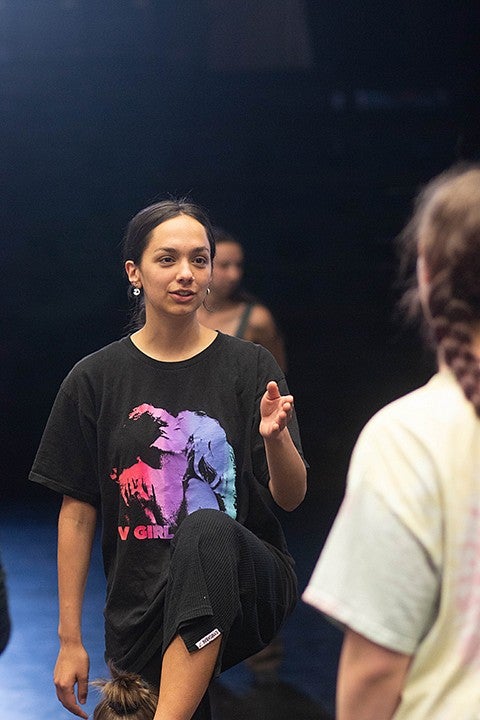
She has also gotten to know the Honors College through her work at the front desk. Yousaf spent many a shift at the front of the first floor of Chapman, answering questions and directing students to classrooms. “Working at the front desk for two years, I get to see the Honors College breathe in and breathe out on a day-to-day,” she says.
Her close relationships with the faculty and mentors that she met through the University of Oregon and the Clark Honors College have influenced her to continue her education at Columbia University.
Ian McNeely, a Clark Honors College history professor, worked with Yousaf on her study abroad in Berlin. “She showed a maturity of intellect and always elevated class conversations,” he recalls.
He and Yousaf have kept in touch throughout the year, with her dropping by office hours to say hello. “She kept me in the loop, and we would chat about her future plans,” he says. “I’m really excited to see how she does at Columbia.”
Continuing to grow
Next year, she will be working toward a master’s in international affairs, economic and political development, and conflict resolution. “I’m grateful for the faculty who invested their time in me and their energy,” Yousaf says. “People who I didn’t even have their classes, I would go to their office hours and talk about grad school and they would want to get to know me.”
She hopes she can put the work she did on her thesis – “Ask, Don’t Tell: Postcoloniality in Development Theory and Practice” – in play at Columbia. Yousaf recalls struggling to fit the complexities of her paper into the 30- to 40-minute presentation.
But she enjoyed engaging with her advisors and mentors during the question-and-answer session afterward. And by the time it was over, she had won their praise. “(My advisors) started debating each other during the defense, which I think maybe means it’s a good presentation,” Yousaf says.
She will always be grateful for the opportunities that she’s had when it comes to her schooling.
“My whole life, I’ve had the perspective that my grandma didn’t get to go to school,” she says. “Me as a nonwhite, female-presenting person, me going to school and going to college and going to grad school is crazy,” she says. “It shouldn’t be that crazy, but I’m always aware that the things I get to do are a privilege.”

